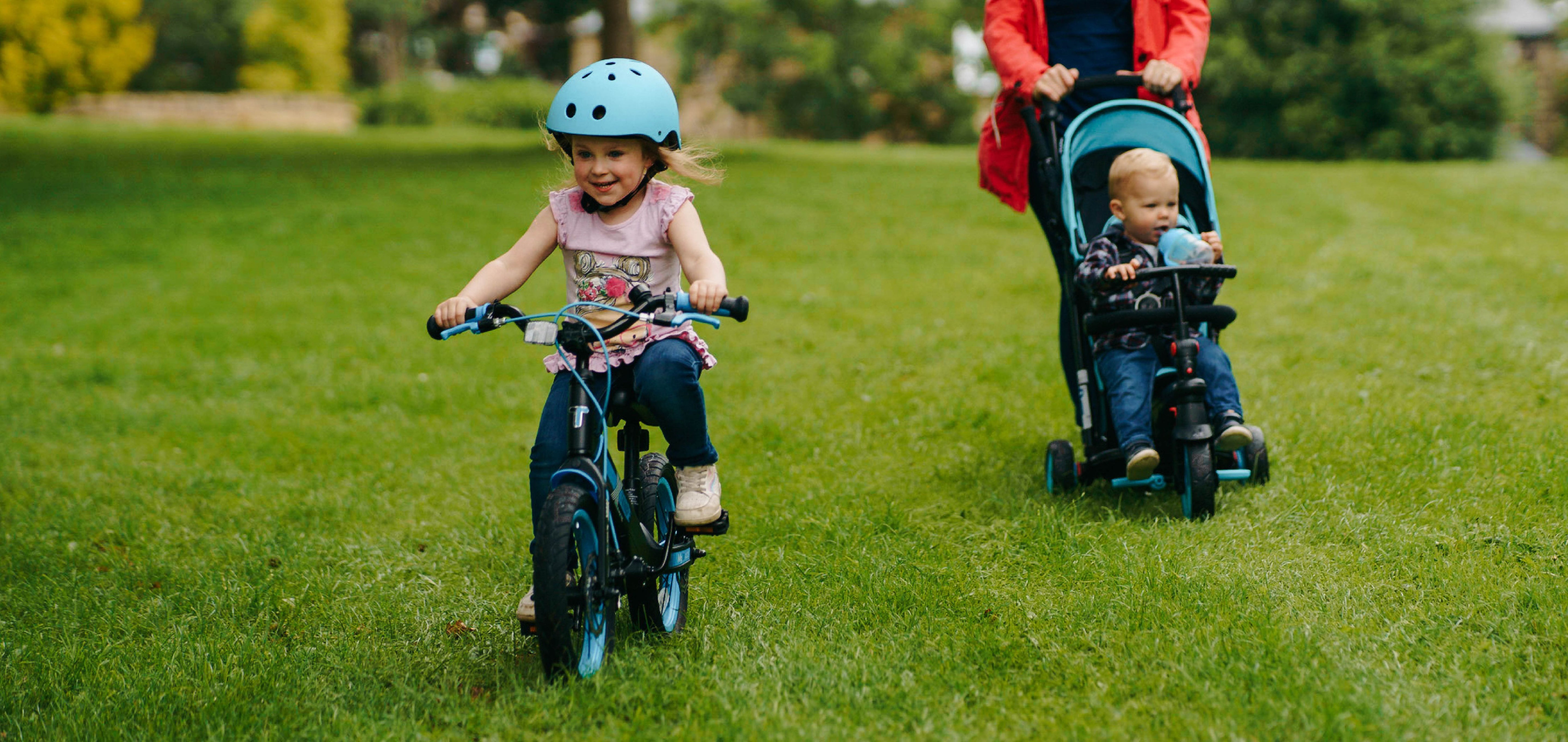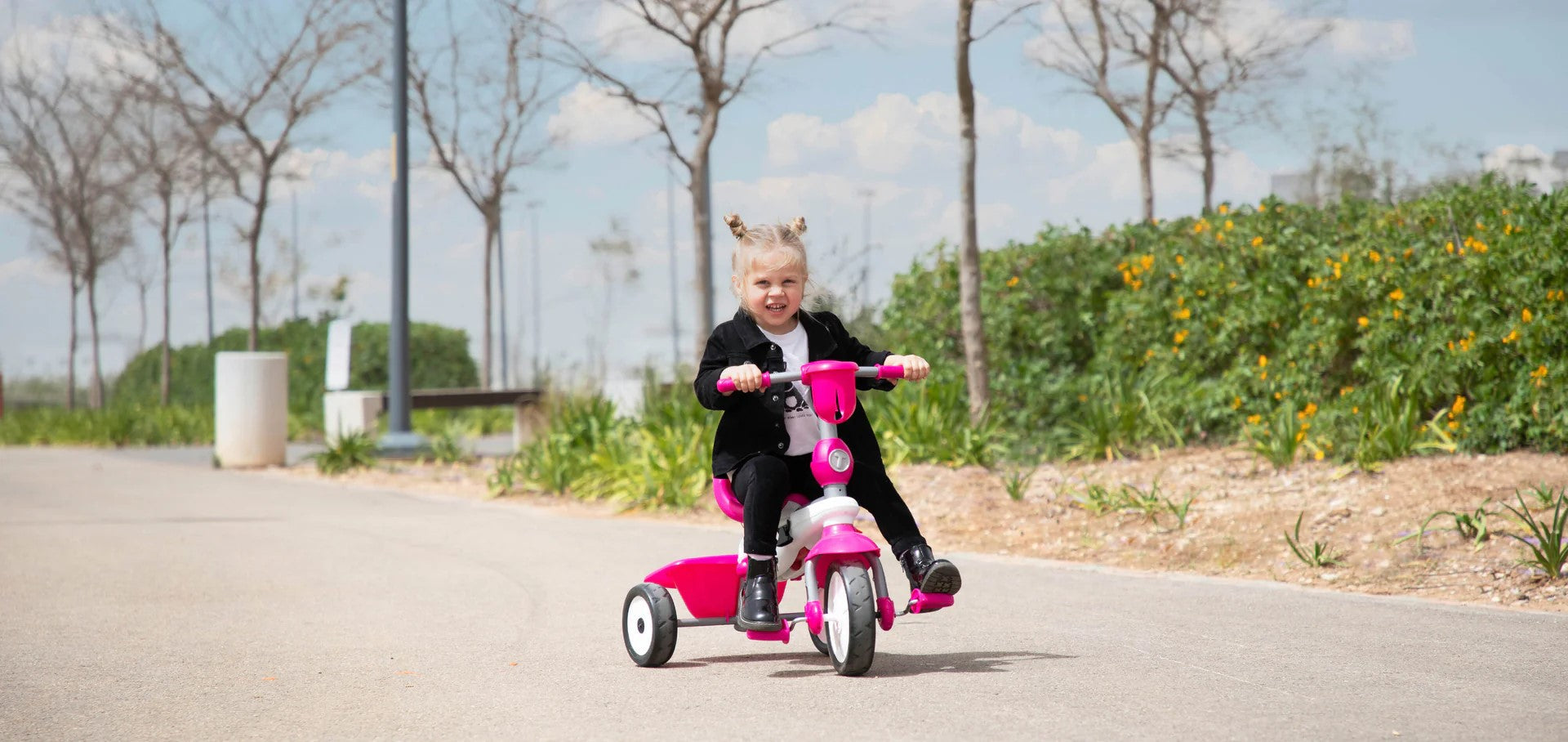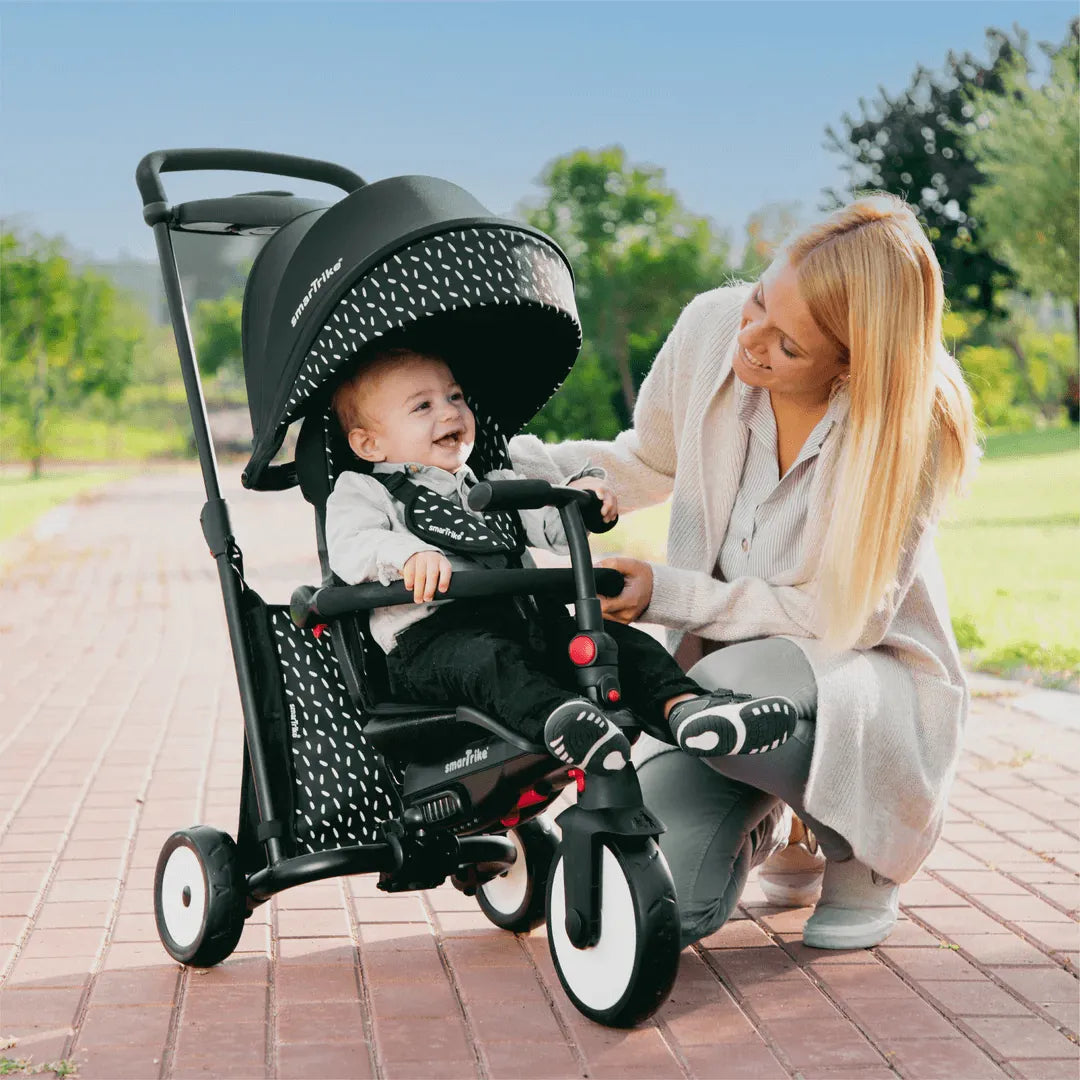Children have an amazing chance to learn and grow while playing. Through play, they'll have fun and acquire important skills that shape their future. Play lays the foundation for their cognitive, physical, social, and emotional well-being.
Jean Piaget's theory of cognitive development explains that children go through four stages of play. Through these stages, children learn about the environment and gain important cognitive abilities, which range from simple single-player play to more complex interactive play. Play also allows children to interact with others, practice communication, and develop key social skills such as sharing, rotation, and cooperation.
During summer playtime, these skills can be developed successfully.
» Do you have a baby? Learn how to support them during infant developmental stages
4 Stages of Play in Child Development
1. Functional Play in Child Development
During this stage, children engage in activities that involve exploring objects and using them as intended. For instance, they might pretend to cook with toy kitchen tools or move a toy car across the floor. This type of play helps children develop skills, such as:
- Object permanence and how items exist even when not seen
- Language, like items' representations through words
- Coordination, which improves physical development
- Thinking, which helps with general cognitive skills
2. Constructive Play in Child Development
Constructive play often begins around the age of 2. At this stage, children learn to employ the things they have discovered during functional play for a defined purpose. Constructive play aids in the formation of new skills and children's physical and cognitive development.
Summer activities that can foster constructive play involve:
- Building towers and cities out of blocks on the playground, which promotes spatial reasoning and problem-solving.
- Playing with sand to build sandcastles highlights gross motor skills.
- Drawing murals with chalk on the sidewalk encourages creativity.
Parallel play in child development is when children play side-by-side but not with each other. This highlights early social skills and inspires future cooperative play. Children can develop independence, explore their interests, and learn from their peers, promoting social awareness and communication skills.
During parallel play, kids still pay attention to others. For example, if one child sees another building a sandcastle on the beach, they might begin to do the same by copying actions.
3. Dramatic Play in Child Development
Dramatic play, often known as pretend or fantasy play, usually happens between the ages of 2 and 3 when children begin to use their developing cognitive skills.
Dramatic play involves acting out various roles, such as playing house, feeding and cradling a doll, pretending to chat on a phone, or conversing with their plushies. Kids build an environment with objects, immersing themselves in imaginary scenarios.
Social play during early child development helps children learn how to engage effectively with others. This helps develop social skills like:
- Negotiating
- Empathy
- Idea sharing
- Expressing feelings
- Making compromises
- Cooperating with others
Outdoor summer activities that promote social play, such as meeting with others on the playground or in the park, allow children to participate in dramatic play together, fostering social development and creating memorable shared experiences.
4. Games With Rules in Child Development
Parents can encourage their children to play with others by providing age-appropriate toys and activities that promote following rules. These games teach youngsters:
- The value of fairness
- Taking turns
- Cooperation
- Respecting the boundaries of others
- Integrity
- Sportsmanship
Fostering open-ended play, in which children are free to explore and make their own rules within certain boundaries, can also help to develop interpersonal interactions and problem-solving skills.
Parents can engage their children in conversation by asking thought-provoking questions such as "What would happen if you...?" or "What could you do next?" This encourages their imagination, critical thinking, and cooperation as they collaborate with others.
Physical Play in Child Development
Summer is the perfect time for kids to get active and engage in physical play that helps contribute to their physical development. This can include strengthening their muscles and bones. Some summer activities kids can surely enjoy this summer are:
- Hiking: This can be done on nature trails or in local parks and helps children immerse in nature's beauty. Plus, they can learn the names of what they see.
- Hula hooping: This is a fun and healthy exercise that doesn't require expensive or complicated equipment. Children can rock their hips to the music, improving coordination and motor skills.
- Riding a stroller trike: Riding a stroller trike is a safe and comfortable activity for children. It can help kids develop a sense of direction, coordination, and balance. It also allows children to enjoy the view, explore, and be physically active all at once.
» Discover why physical activity is important for child development
Improve Child Development With Summer Strolling
Summer adventures and outdoor play have an enormous effect on child development. Tools like the SmarTrike x Kelly Anna stroller trike can help aid that development in a fun and engaging way. It provides convenience and comfort with features such as parent steering mode, a baby leg rest, and a sun canopy for those particularly hot summer days.
While your child keeps active with various activities, they're also sharpening their motor skills, experiencing autonomous exploration, and improving sensory and cognitive development. For balanced growth, ensure your child also tries play styles that support social skills.









